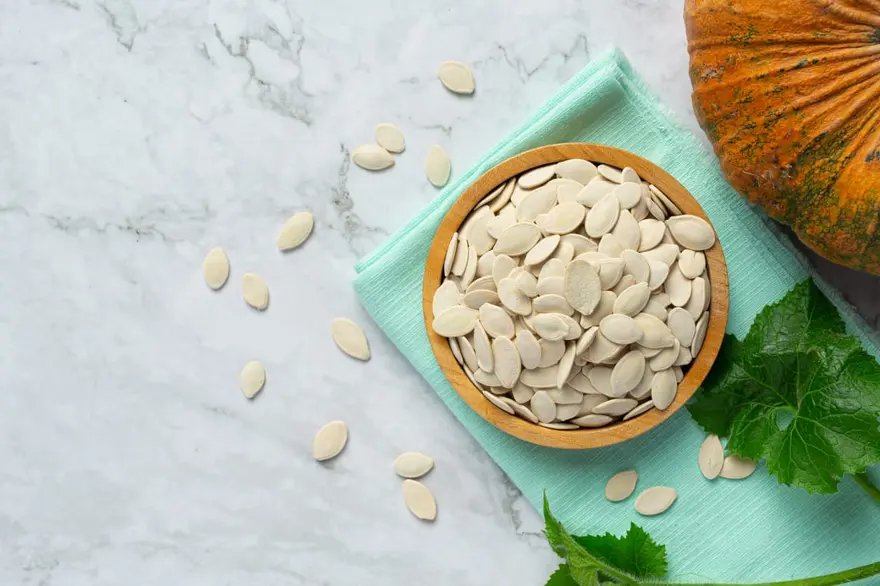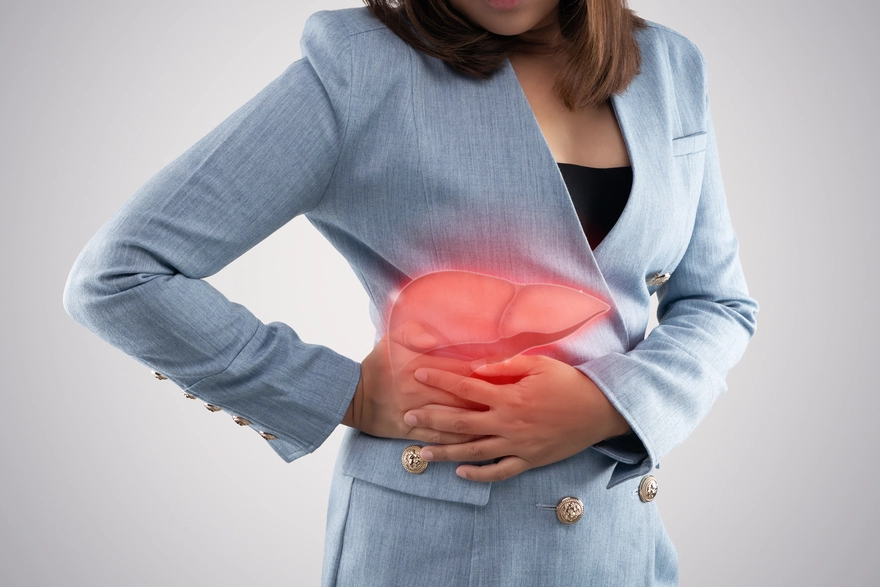Preventive Healthcare
Pumpkin Seeds Benefits: Nutrition, Health, and Tips for Expecting Moms
940 Views
0

Are you looking for a nutritious snack that can support your health during pregnancy and beyond? Look no further than the humble pumpkin seed. Packed with essential nutrients, pumpkin seeds offer a wide range of health benefits, making them a great addition to any diet, especially for expecting moms. In this article, we'll explore the nutritional value of pumpkin seeds, their potential health benefits, and tips for incorporating them into your meals and snacks. Whether you're pregnant or simply looking to boost your overall health, read on to discover the power of pumpkin seeds.
What Are Pumpkin Seeds?
Pumpkin seeds, also known as pepitas, are the edible seeds found inside pumpkins. These flat, oval-shaped seeds are usually light green in colour and have a delicate, nutty flavor. Pumpkin seeds can be consumed raw, roasted, or added to various dishes for a crunchy, nutritious boost. They are a popular snack and are often used in culinary applications, such as garnishing salads, soups, and baked goods.
Pumpkin Seed Nutrition
Nutrients per serving
Pumpkin seeds are a nutrient-dense food, packed with essential vitamins, minerals, and beneficial compounds. A one-cup serving (64 grams) of dried pumpkin and squash seed kernels contains:
- 33.87 grams of protein
- 63.27 grams of total lipid (fat), mostly unsaturated fats
- 24.58 grams of carbohydrate
- 746.58 kcal of energy
- 5.38 grams of fibre
Pumpkin seeds are also rich in minerals, including:
- Magnesium: 738.3 mg
- Phosphorus: 1620.12 mg
- Potassium: 1113.66 mg
- Zinc: 10.29 mg
- Iron: 20.66 mg
- Copper: 1.91 mg
- Manganese: 4.17 mg
- Selenium: 7.73 mcg
Additionally, pumpkin seeds contain various vitamins, such as vitamin C, thiamin, riboflavin, niacin, vitamin B-6, folate, and vitamin K.
Portion sizes
A typical serving size for pumpkin seeds is about 1 ounce (28 grams), which is roughly a quarter cup or a small handful. This serving size provides approximately:
- 160 calories
- 8.6 grams of protein
- 14 grams of fat
- 1.7 grams of fibre
Incorporating this serving size into your daily diet can help you reap the numerous health benefits of pumpkin seeds.
Health Benefits of Pumpkin Seeds
1. Reducing the risk of diabetes
Pumpkin seeds contain magnesium and other nutrients that can help regulate blood sugar levels and improve insulin sensitivity. Studies suggest that consuming magnesium-rich foods like pumpkin seeds may reduce the risk of developing type 2 diabetes. Magnesium plays a crucial role in glucose metabolism, and adequate intake can help maintain healthy blood sugar control.
2. Anti-inflammatory properties
The antioxidants and other beneficial compounds found in pumpkin seeds have anti-inflammatory properties. Inflammation is linked to various chronic diseases, such as arthritis and heart disease. Regularly consuming pumpkin seeds may help reduce inflammation in the body, thereby lowering the risk of developing these conditions. The high magnesium content in pumpkin seeds also contributes to their anti-inflammatory effects.
3. Anti-cancer properties
Some studies suggest that the antioxidants and phytochemicals present in pumpkin seeds may have anti-cancer properties. These compounds can help protect cells from damage caused by free radicals, which are unstable molecules that can contribute to the development of cancer. Specifically, research has indicated that pumpkin seed extracts may have the potential to reduce the risk of breast cancer.
4. May improve heart health
The unsaturated fats, magnesium, and other nutrients found in pumpkin seeds can support heart health in several ways. These nutrients can help lower cholesterol levels, reduce blood pressure, and decrease the risk of heart disease. The high magnesium content in pumpkin seeds is particularly beneficial, as magnesium helps regulate blood pressure and supports healthy heart function.
5. May improve sperm quality
Pumpkin seeds are a rich source of zinc, a mineral that plays a crucial role in male reproductive health. Zinc is essential for the production and quality of sperm. Consuming zinc-rich foods like pumpkin seeds may help improve sperm quality and support male fertility. Additionally, antioxidants in pumpkin seeds can help protect sperm from oxidative stress.
6. Better sleep
Pumpkin seeds contain tryptophan, an amino acid that can help promote better sleep. Tryptophan is converted into serotonin in the body, which is then converted into melatonin, a hormone that regulates sleep-wake cycles. Consuming pumpkin seeds regularly may help improve the quality of your sleep and make it easier to fall asleep at night. The magnesium in pumpkin seeds also contributes to better sleep by promoting relaxation.
7. Aids in weight management
The high fibre and protein content in pumpkin seeds can help support weight management efforts. Fibre and protein are known to promote feelings of fullness and satiety, which can help reduce overall calorie intake. Incorporating pumpkin seeds into a balanced diet may assist in achieving and maintaining a healthy weight. However, it's essential to keep portion sizes in mind, as pumpkin seeds are calorie-dense.
8. Supports bone health
Pumpkin seeds are an excellent source of magnesium, phosphorus, and other minerals that are essential for maintaining strong and healthy bones. These nutrients work together to support bone mineralisation and reduce the risk of osteoporosis and fractures. Regularly consuming pumpkin seeds as part of a balanced diet can help ensure an adequate intake of these bone-supporting minerals.
Health Benefits During Pregnancy
- Promotes Healthy Foetal Development
Pumpkin seeds are a nutrient-dense food that can provide essential vitamins and minerals to support healthy foetal development during pregnancy. The high protein content in pumpkin seeds aids in the formation and growth of foetal tissues and muscles. The iron in pumpkin seeds is crucial for the development of the foetal brain and red blood cells, while zinc supports the development of the immune system.
- Supports Maternal Health
Consuming pumpkin seeds during pregnancy can also benefit maternal health. The high iron content in these seeds helps support the increased blood volume that occurs during pregnancy, reducing the risk of anemia. Magnesium, another mineral abundant in pumpkin seeds, can help alleviate common pregnancy discomforts such as leg cramps and may reduce the risk of preterm labour.
- Eases Digestion
Pregnancy can often lead to digestive issues such as constipation. The fibre content in pumpkin seeds can help promote regular bowel movements and support a healthy digestive system. Fibre adds bulk to the stool and helps it move smoothly through the digestive tract, easing constipation and promoting overall digestive comfort.
- Boosts Immunity
Zinc, a mineral found in high amounts in pumpkin seeds, plays a vital role in supporting the immune system. During pregnancy, a strong immune system is essential for both the mother and the developing fetus. Zinc acts as an antioxidant and anti-inflammatory agent, helping to protect against infections and illnesses. Regularly consuming pumpkin seeds can contribute to a robust immune system throughout pregnancy.
Tips for Adding Pumpkin Seeds to Your Diet
Incorporating pumpkin seeds into your diet is simple and versatile. Here are some tips and ideas:
- Enjoy them as a snack: Roast pumpkin seeds with a little salt or your favourite seasonings for a crunchy, satisfying snack.
- Add them to salads: Sprinkle pumpkin seeds over your favourite salads for added texture and nutrition.
- Use them in baking: Incorporate pumpkin seeds into bread, muffins, or energy bar recipes for a nutritious boost.
- Blend them into smoothies: Add a tablespoon or two of pumpkin seeds to your smoothies for extra protein and healthy fats.
- Garnish soups and stews: Top your favourite soups or stews with a handful of pumpkin seeds for added crunch and flavour.
Remember to start with small amounts and gradually increase your intake to assess your tolerance and prevent any potential digestive discomfort.
Conclusion
Pumpkin seeds are nutrient-rich, offering protein, healthy fats, vitamins, and minerals that support heart health, sleep, weight management, and bone strength. For pregnant women, they aid foetal development, digestion, and immunity. If you're looking for a reliable partner in your health journey, consider Metropolis Healthcare. As a leading chain of diagnostic labs across India, Metropolis Healthcare offers accurate pathology testing and health check-up services. Their team of qualified blood collection technicians can visit you at home for convenient sample collection, and your test reports are easily accessible online through email and the user-friendly Metropolis TruHealth app.
FAQs
What is the healthiest way to eat pumpkin seeds?
The healthiest way to consume pumpkin seeds is raw or dry roasted without added salt or oil. This preserves their natural nutrients and avoids the addition of unnecessary sodium or unhealthy fats.
Are pumpkin seeds safe to eat during pregnancy?
Yes, pumpkin seeds are generally safe to consume during pregnancy. They offer numerous benefits for expecting moms and can support foetal development. However, it's always best to consult with your healthcare provider regarding your specific dietary needs during pregnancy.
How many pumpkin seeds should I eat daily while pregnant?
There is no specific recommended daily intake of pumpkin seeds during pregnancy. As a general guideline, consuming a small handful (about 1 ounce or 28 grams) of pumpkin seeds per day can provide valuable nutrients without adding excessive calories to your diet. It's essential to include a variety of nutrient-rich foods in your pregnancy diet.
Are roasted pumpkin seeds as nutritious as raw ones?
Roasted pumpkin seeds can be just as nutritious as raw ones, provided they are dry roasted without added oils or excessive salt. Roasting may slightly reduce the vitamin content, but the minerals and beneficial fats remain largely intact. Both raw and dry roasted pumpkin seeds offer significant health benefits.
Can pumpkin seeds help with pregnancy-related constipation?
Yes, the high fibre content in pumpkin seeds can help alleviate pregnancy-related constipation. Fibre promotes regular bowel movements and helps soften the stool, making it easier to pass. Incorporating pumpkin seeds into your diet, along with other fibre-rich foods and adequate hydration, can support digestive health during pregnancy.













1701259759.webp)









 WhatsApp
WhatsApp